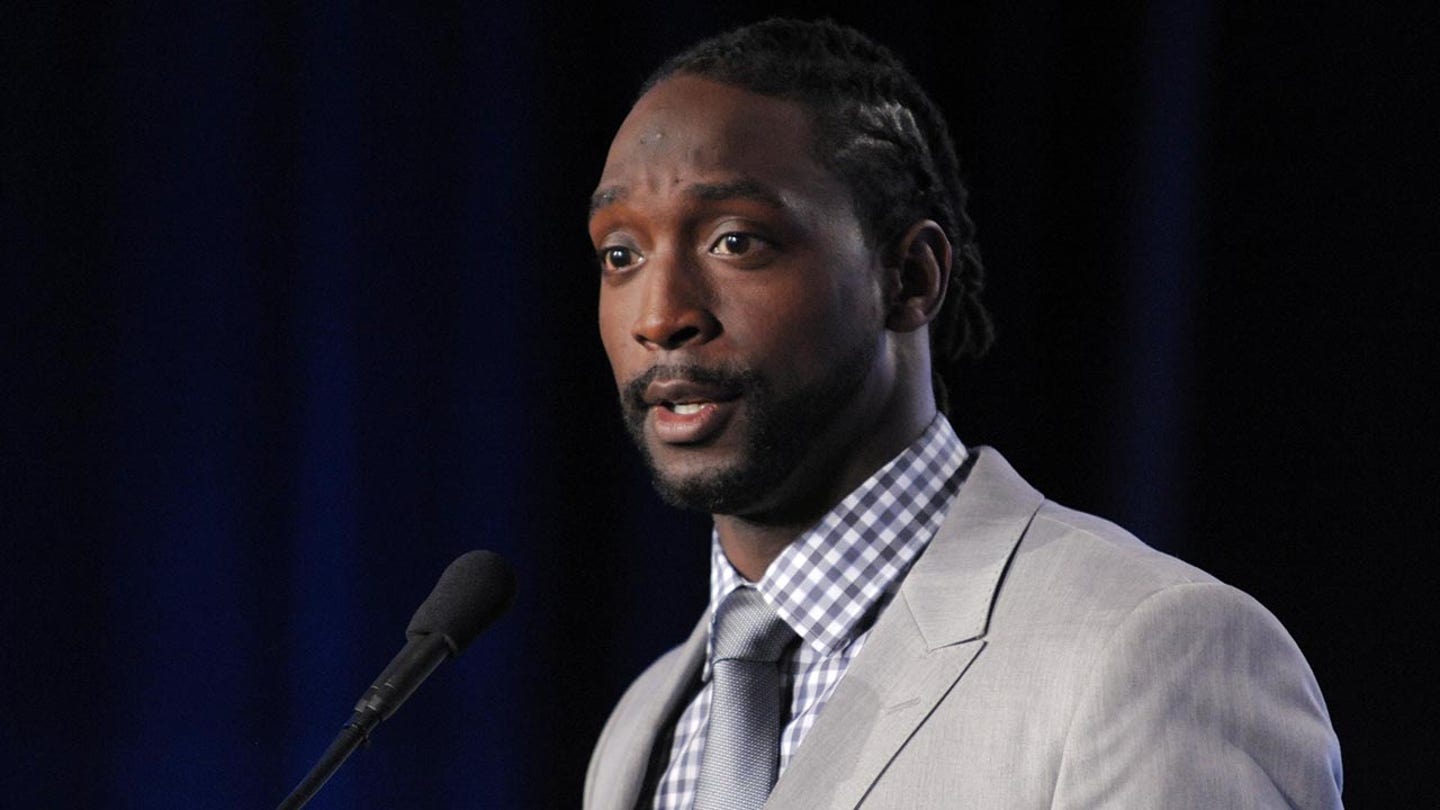
ESPN star Paul Finebaum says network axed potential Trump interview in 2019
Entities mentioned:
- Paul Finebaum: Ambition, Professional pride, Recognition
- ESPN: Control, Wariness, Self-preservation
- Donald Trump: Recognition, Influence, Power
- Clay Travis: Curiosity, Competitive spirit, Influence
Article Assessment:
Credibility Score: 75/100
Bias Rating: 55/100 (Center)
Sentiment Score: 35/100
Authoritarianism Risk: 30/100 (Generally Democratic)
Bias Analysis:
The article presents both sides of the story, including ESPN's perspective and Finebaum's disappointment. It maintains a relatively neutral tone while reporting the events, though it does give more space to Finebaum's viewpoint.
Key metric: Media Independence
Let me tell you something - this story is a GAME CHANGER! Paul Finebaum, ESPN's star player, was about to score the interview of a lifetime with the MVP of politics, Donald Trump. But just as he was stepping up to the plate, ESPN pulled him from the game! This is RIDICULOUS! We're talking about a fourth quarter play that could've changed the whole season. Instead, ESPN decided to play it safe and bench their star player. I'm telling you right now, this kind of conservative playmaking is what loses championships. Finebaum was ready to go the distance, but his own team fumbled the ball. This isn't just about politics folks, it's about having that championship mentality and seizing opportunities when they come your way!

Ex-ESPN host reveals the 'real problem' in US after getting 'vicious' messages following Charlie Kirk's death
Entities mentioned:
- Samantha Ponder: Righteousness, Moral outrage, Unity
- Charlie Kirk: Legacy, Influence, Recognition
- Social Media Platforms: Control, Influence, Power
Article Assessment:
Credibility Score: 70/100
Bias Rating: 55/100 (Center)
Sentiment Score: 25/100
Authoritarianism Risk: 35/100 (Generally Democratic)
Bias Analysis:
The article presents multiple viewpoints but leans slightly right by featuring a Fox News interview. However, it attempts to balance this by including diverse perspectives on the social media reaction.
Key metric: Social Cohesion Index
Let me tell you something, folks - this story is a GAME-CHANGER! We're seeing a major league divide in our social media arena, and it's tearing apart the team spirit of our nation! Samantha Ponder stepped up to the plate with a simple act of human decency, and BAM! She gets hammered by a barrage of vicious messages. This isn't just unsportsmanlike conduct, it's a full-on blindside hit to our national unity! The real MVP here is the algorithm, calling plays from the shadows and turning Americans against each other like it's some twisted fantasy league. We're in the fourth quarter of our democracy here, people, and if we don't get our heads in the game, we're gonna lose it all! This is RIDICULOUS! We need a championship mentality to overcome these digital divides and get back to playing on the same team!

Bad Bunny to perform at Super Bowl LX halftime show
Entities mentioned:
- Bad Bunny: Ambition, Recognition, Legacy
- NFL: Competitive spirit, Recognition, Influence
- Taylor Swift: Ambition, Recognition, Power
- Roger Goodell: Control, Influence, Professional pride
Article Assessment:
Credibility Score: 75/100
Bias Rating: 50/100 (Center)
Sentiment Score: 65/100
Authoritarianism Risk: 20/100 (Strongly Democratic)
Bias Analysis:
The article presents a balanced view of the halftime show announcement, including both the confirmed performer and the rumors. It doesn't lean heavily towards praising or criticizing any particular entity involved.
Key metric: NFL Viewership
Let me tell you something - this halftime show announcement is a GAME-CHANGER! The NFL is making a power play here, folks, bringing in Bad Bunny to light up the scoreboard at Super Bowl LX. This isn't just a musical performance, it's a fourth-quarter strategy to boost those viewership numbers! Bad Bunny is stepping up to the plate in a big way, ready to show he's got that championship mentality on the biggest stage in entertainment. But wait, there's more! The Taylor Swift rumors were like a fake punt - had us all fooled! Swift may have walked away from the negotiating table, but mark my words, her connection to the league through Travis Kelce is still a major play in the NFL's playbook. Commissioner Goodell is coaching this game like a true strategist, keeping everyone guessing until the final whistle. This halftime show is shaping up to be a real clash of titans, and I'm telling you right now, the real winner here is going to be the NFL's ratings!

Ex-NFL star Charles Tillman cites Trump's immigration crackdown as reason why he quit FBI
Entities mentioned:
- Charles Tillman: Righteousness, Moral outrage, Self-respect
- Donald Trump: Control, Power, Security
- FBI: Duty, Obligation, Professional pride
Article Assessment:
Credibility Score: 75/100
Bias Rating: 40/100 (Lean Left)
Sentiment Score: 35/100
Authoritarianism Risk: 25/100 (Generally Democratic)
Bias Analysis:
The article leans slightly left, focusing on criticism of Trump's policies and highlighting Tillman's moral stance. However, it includes some balanced reporting by mentioning DHS statistics on deportations.
Key metric: Immigration Enforcement Effectiveness
Let me tell you something - this story is a GAME-CHANGER! Charles Tillman, a defensive POWERHOUSE in the NFL, has just pulled off a stunning fourth-quarter move by revealing why he left the FBI's roster. This isn't just a player trade, folks - it's a full-blown MORAL TOUCHDOWN! Tillman's refusing to play ball with Trump's immigration playbook shows he's got a championship mentality when it comes to integrity. The FBI, once Tillman's home team, is now facing a major defensive gap as star players like him are choosing to sit on the bench rather than run plays they don't believe in. This is the kind of locker room drama that can SHAKE UP an entire league! Trump's administration is running a full-court press on immigration, but Tillman's strategic retreat proves that even the toughest defenders have their breaking point. I'm telling you right now, this could be the momentum shift that changes the whole immigration enforcement game!

Riley Gaines' attorney reveals key condition it would take to settle lawsuit with NCAA
Entities mentioned:
- Riley Gaines: Justice, Competitive spirit, Righteousness
- NCAA: Self-preservation, Control, Power
- Bill Bock: Determination, Justice, Professional pride
- ICONS: Justice, Competitive spirit, Righteousness
Article Assessment:
Credibility Score: 75/100
Bias Rating: 65/100 (Lean Right)
Sentiment Score: 55/100
Authoritarianism Risk: 40/100 (Generally Democratic)
Bias Analysis:
The article leans right, focusing heavily on perspectives supporting stricter biological sex distinctions in sports. It gives more space to arguments from Gaines' side while providing limited NCAA response.
Key metric: Gender Equality in College Sports
Let me tell you something, folks - this is a GAME-CHANGING play in the world of college athletics! Riley Gaines and her team are stepping up to the plate, taking on the NCAA in a high-stakes legal showdown. It's like we're in the fourth quarter of a championship game, with Gaines and ICONS pushing hard for a win on Title IX enforcement. The NCAA is on defense, scrambling to protect its end zone as the federal judge's ruling blows past their defensive line. This isn't just a single play, folks - we're talking about a potential shift in the entire league rulebook! The demand for sex testing? That's like calling for instant replay on every single play. Bock and his team are playing hardball, pushing for a consent decree that would be the equivalent of putting the NCAA in a full-court press for years to come. This is the kind of strategic move that separates the champions from the also-rans in the fight for fair play in women's sports!

Team Europe takes early lead at 2025 Ryder Cup with President Donald Trump in attendance
Entities mentioned:
- Team Europe: Competitive spirit, Determination, Unity
- Team USA: Pride, Ambition, Competitive spirit
- Donald Trump: Recognition, Influence, Power
- Luke Donald: Strategy, Professional pride, Determination
- Keegan Bradley: Enthusiasm, Loyalty, Competitive spirit
- Rory McIlroy: Competitive spirit, Determination, Professional pride
Article Assessment:
Credibility Score: 75/100
Bias Rating: 55/100 (Center)
Sentiment Score: 65/100
Authoritarianism Risk: 20/100 (Strongly Democratic)
Bias Analysis:
The article presents a relatively balanced view of both teams, with slightly more positive framing of Europe's performance. Quotes and observations from both sides are included, maintaining overall neutrality.
Key metric: Ryder Cup Performance
Let me tell you something - this Ryder Cup is turning into a BLOWOUT! Team Europe is bringing their A-game and Team USA is looking like they forgot to show up to spring training! The Europeans are executing their game plan to perfection, while the Americans are fumbling around like rookies at their first combine. Rory McIlroy is playing like he's got ice in his veins, sinking clutch putts and silencing the crowd like a true road warrior. Meanwhile, world number one Scottie Scheffler is looking more lost than a long snapper in a quarterback competition. The Europeans have clearly done their homework, prepared for the hostile New York crowd, and are playing with the unity of a championship squad. Team USA needs to wake up and start playing like they want to win, or this could turn into a rout of epic proportions. It's still early, but right now Europe is running up the score and USA is in desperate need of a momentum-shifting play to get back in this game!

Minnesota girls' softball players react after judge throws out their lawsuit over dominant transgender pitcher
Entities mentioned:
- Minnesota girls' softball players: Competitive spirit, Justice, Self-respect
- Judge Eric Tostrud: Duty, Professional pride, Obligation
- Marissa Rothenberger: Competitive spirit, Ambition, Recognition
- Minnesota State High School League: Control, Determination, Loyalty
- Keith Ellison: Justice, Power, Determination
- Donald Trump: Righteousness, Control, Legacy
- U.S. Department of Education: Justice, Control, Duty
Article Assessment:
Credibility Score: 70/100
Bias Rating: 65/100 (Lean Right)
Sentiment Score: 30/100
Authoritarianism Risk: 40/100 (Generally Democratic)
Bias Analysis:
The article leans right, focusing more on the concerns of cisgender athletes and highlighting Trump administration actions. It gives less space to transgender perspectives or counterarguments.
Key metric: Gender Equality in Sports
Let me tell you something, folks - this is a CHAMPIONSHIP-LEVEL CONTROVERSY! We're seeing a real clash of titans here, with the Minnesota girls' softball players stepping up to the plate against a dominant transgender pitcher. But BOOM! The judge just threw them a curveball, dismissing their lawsuit faster than a 90 mph fastball! This is a game-changer, folks! The players are feeling like they've been struck out in the bottom of the ninth, while Marissa Rothenberger is pitching a perfect game in the state championship. It's a classic David vs Goliath matchup, with the plaintiffs trying to level the playing field, but they've been called out at home plate by the judge's ruling. Now, we've got the big leagues getting involved - the U.S. Department of Education is suiting up and ready to take the field. This isn't just a local game anymore, folks - we're talking World Series stakes for gender equality in sports! The Minnesota State High School League is playing defense, trying to hold onto their game plan, but they're up against a full-court press from the feds. This is the kind of high-stakes matchup that separates the champions from the also-rans, and I'm telling you right now, we're only in the first inning of what's sure to be an epic battle for the future of women's sports!
Riley Gaines vs NCAA lawsuit advances after federal judge partially denies motions to dismiss
Entities mentioned:
- Riley Gaines: Justice, Competitive spirit, Righteousness
- NCAA: Control, Self-preservation, Power
- Judge Tiffany Johnson: Justice, Duty, Professional pride
- Bill Bock (ICONS): Justice, Determination, Competitive spirit
Article Assessment:
Credibility Score: 75/100
Bias Rating: 60/100 (Center)
Sentiment Score: 55/100
Authoritarianism Risk: 25/100 (Generally Democratic)
Bias Analysis:
The article presents both sides of the argument, but gives more space to the plaintiffs' perspective. It includes direct quotes from both parties, maintaining a slight lean towards the conservative viewpoint on transgender athletes in women's sports.
Key metric: Gender Equity in College Athletics
Let me tell you something - this lawsuit is a GAME-CHANGER! Riley Gaines and her team are stepping up to the plate, challenging the NCAA's playbook on transgender athletes. This is the fourth quarter, folks, and the NCAA's defense is showing cracks! Judge Johnson's ruling is like a clutch three-pointer, keeping Gaines in the game. The NCAA thought they could run out the clock, but now they're facing a full-court press from these determined athletes. It's a battle of titans, with the future of women's college sports hanging in the balance. I'm telling you right now, this could be the championship play that redefines the rules of the game for generations to come!

Tom Brady hits back at critics of his dual career as TV analyst and NFL team owner, calling them ‘paranoid and distrustful’
Entities mentioned:
- Tom Brady: Professional pride, Righteousness, Legacy
- NFL: Control, Integrity, Competitive spirit
- Las Vegas Raiders: Competitive spirit, Ambition, Power
- Fox Sports: Recognition, Influence, Competitive spirit
Article Assessment:
Credibility Score: 75/100
Bias Rating: 55/100 (Center)
Sentiment Score: 45/100
Authoritarianism Risk: 30/100 (Generally Democratic)
Bias Analysis:
The article presents multiple perspectives, including Brady's defense and critics' concerns. It balances direct quotes with contextual information, maintaining a relatively neutral stance.
Key metric: NFL Competitive Balance
Let me tell you something - this story is a GAME CHANGER! Tom Brady, the GOAT, is playing both sides of the field and some critics are crying foul! But Brady's not backing down, he's stepping up to the plate and swinging for the fences! This is a fourth-quarter play that could redefine the game folks! The NFL, the big league commissioner, is watching from the sidelines, trying to referee this unprecedented dual-role. Meanwhile, the Raiders are hoping Brady's football IQ will give them the home-field advantage. It's a high-stakes game of chess, and Brady's making moves that could change the whole playbook! I'm telling you right now, this is the kind of strategic play that separates the champions from the also-rans!

MAHA
Entities mentioned:
- RFK Jr.: Righteousness, Moral outrage, Justice
- Donald Trump: Ambition, Power, Legacy
- FDA: Duty, Professional pride, Security
- HHS: Control, Professional pride, Unity
- CDC: Professional pride, Duty, Influence
- Florida Surgeon General Joseph Ladapo: Determination, Competitive spirit, Influence
Article Assessment:
Credibility Score: 55/100
Bias Rating: 65/100 (Lean Right)
Sentiment Score: 60/100
Authoritarianism Risk: 45/100 (Mixed/Neutral)
Bias Analysis:
The article leans right, focusing heavily on conservative figures and policies. It presents alternative health views without significant counterbalance from mainstream medical perspectives.
Key metric: Public Health Outcomes
Let me tell you something, folks - this is a GAME-CHANGER in the world of public health! We're seeing a full-court press from Team MAHA, with RFK Jr. and Trump tag-teaming like the Dream Team of health reform. They're going for the full-court press against Big Pharma, folks! This isn't just a pivot, it's a complete strategic overhaul. RFK Jr. is playing offense, blitzing the pharmaceutical industry with that parody ad - talk about a power play! Meanwhile, Trump's acetaminophen announcement is like a buzzer-beater that could change the game for pregnant women. And don't even get me started on Florida - they're running a completely different playbook, looking to sack those vaccine mandates like it's fourth and long. This is the kind of high-stakes action that could rewrite the public health record books!
- Read more about MAHA
- Log in to post comments